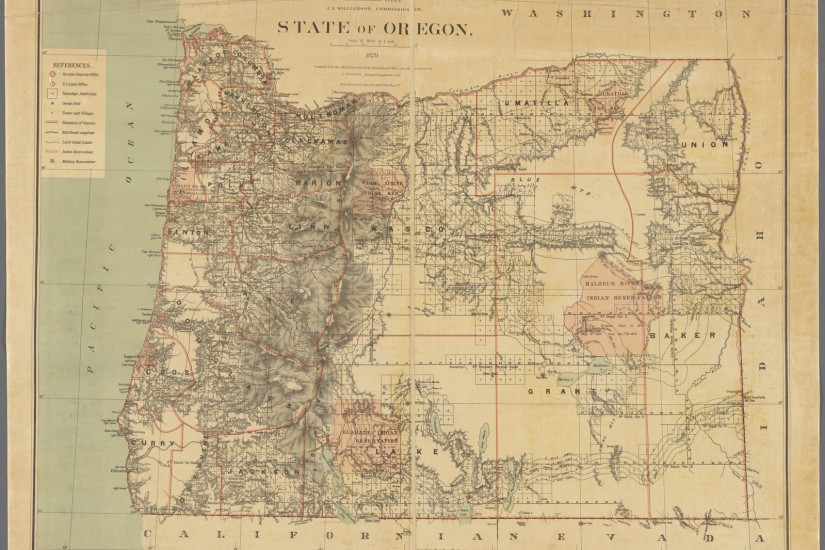Starting in the mid-nineteenth century, and extending through the mid-twentieth century, Oregon was arguably the most racist place outside the southern states, possibly even of all the states. Its legislature tried to keep it all white, excluding people of color with a host of discriminatory laws. So when the Klan arrived in 1921, its agenda fit comfortably into the state’s tradition. When I tell people that Oregon was a stronghold of the Klan, they express surprise, even shock, because of the state’s current reputation as liberal. But that is because they don’t understand its history or demography. Neither did I, although I grew up there.
The Klan gained particularly formidable power in Oregon, especially in my hometown, Portland; Oregon shared with Indiana the distinction of having the highest per capita Klan membership. Moreover, the Oregon Klan’s muscle led it more actively into electoral politics than most other state Klans.
Klan recruiters probably understood Oregon’s potential. Like Indiana, its population of approximately eight hundred thousand in 1920 was overwhelmingly Protestant and white, and 87 percent native-born; of the foreign-born, half were US citizens. Its approximately 2,400 African Americans constituted 0.3 percent, its Catholics 8 percent, and its Jews 0.1 percent of the population, and this demography was both cause and effect of its history of bigotry. In 1844 the Oregon Territory banned slavery but at the same time required all African Americans to leave. In 1857, in the process of achieving statehood, it put two pieces of a future constitution to a referendum vote, and the same contradiction emerged: 75 percent of voters favored rejecting slavery, but 89 percent voted for excluding people of color. Meanwhile, the state offered 650-to 1,300-acre plots of land free — to white settlers. Prevented by federal law from expelling existing black residents, its constitution banned any further blacks from entering, living, voting, or owning property in Oregon (the only state to do this), to be enforced by lashings for violators. In 1862, forced to vacate the previous ban, it levied a $5 (worth $120 in 2016) annual tax on African Americans, Chinese, Hawaiians, and multiracial people who persisted in living there. The Chinese were specifically denied state citizenship. (In 1893 La Grande, Oregon, whites burned that city’s Chinatown to the ground.) Oregon refused to ratify the enfranchisement of black men by the Fourteenth and Fifteenth Amendments; it only did so — and this may come as another surprise — in 1959 and 1973, respectively. In 1906 the Oregon Supreme Court ruled that the prevalent racial segregation of public facilities was constitutional. Interracial marriage was prohibited until 1951.
